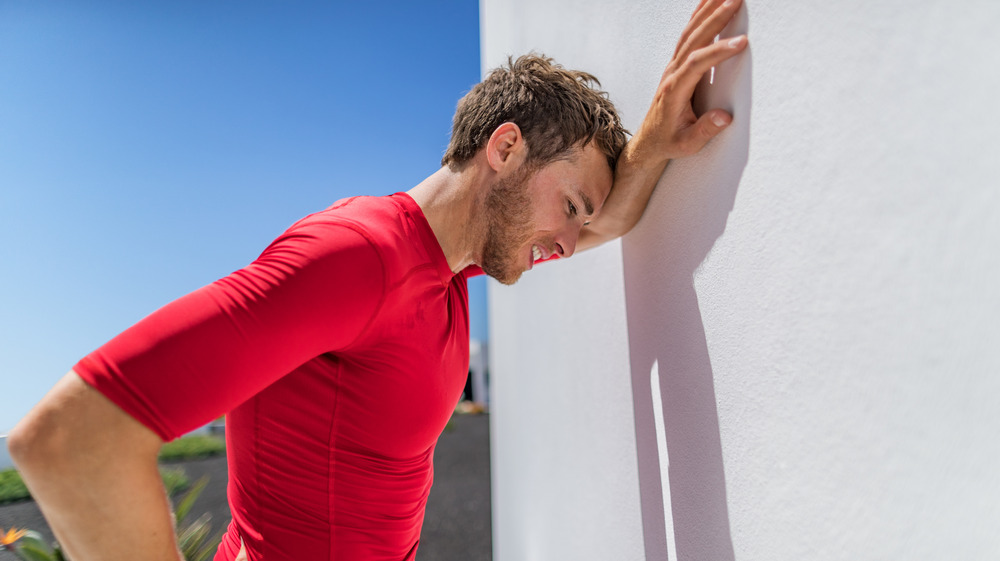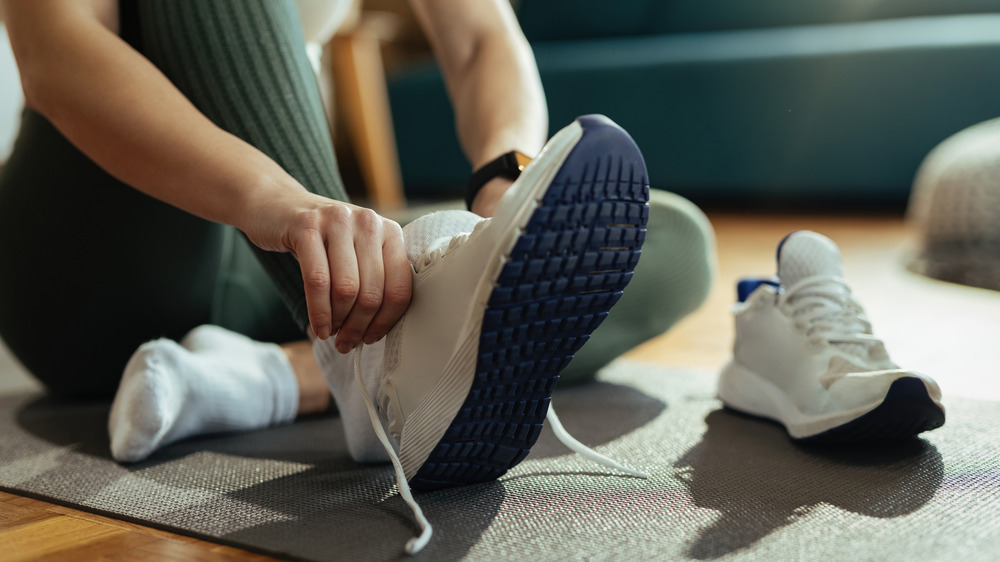The Real Reason Your Workout Feels Harder On Some Days
The fact that the word "workout" includes "work" already indicates that those back squats and plank poses aren't going to be a walk in the park.
But why does it seem that on some workout days you're able to hit the ground running, while on others you feel like, well, just hitting the ground?
One reason your workout may be feeling harder is because you're sleep-deprived. According to the CDC, adults 18 and over should be getting seven or more hours of shut-eye every night, but recent studies show that a majority of Americans have lousy sleep habits. Dr. Wayne Giles, director of CDC's Division of Population Health stands behinds these findings, affirming, "As a nation, we are not getting enough sleep."
Studies also show the undeniable correlation between fitness and sleep (via Everyday Health). And according to the president of Charlottesville Neurology, W. Christopher Winter, M.D., "We exercise for a purpose: for cardiovascular health, to increase lean muscle mass, to improve endurance, and more. All of these 'goals' require sleep."
Yet, while getting a consistent good night's rest is certainly key, there are other factors that could be making your workout feel like a drag.
There may be other reasons why your workout feels harder
One possibility is that you're not eating the right foods. According to Healthline, eating certain foods is important for providing the workout fuel that you'll need. Experts also recommend eating a healthy breakfast on any day you plan to work out. This should include good carbohydrates (sorry, doughnuts) such as whole-grain cereals and fruits, along with lean proteins, and foods that contain healthy fats, like nuts .
Another reason your workouts may be feeling harder than usual is that you're not stretching enough. If you don't stretch properly, you could be adding stress and tension to your joints and tendons (via Fitness Life Advisor).
And have you considered that you might need new sneakers? If you do a consistent amount of running, this will inevitably lead to the deterioration of the cushioning in your running shoes. Less cushioning could lead to aches and pains — or worse — so experts recommend you replace them every 300 – 400 miles (via Verywell Fit).
Of course, if a workout feels harder than usual, it could be a sign that your body simply needs a day off. Just like we all need sleep to recover from the day, our bodies need time to recover from working out (via The Active Times). So try taking a day off from your workout. It sounds like a stretch, but you may discover it's just what the doctor ordered.


